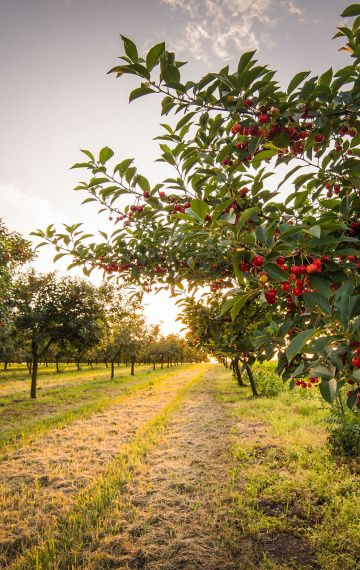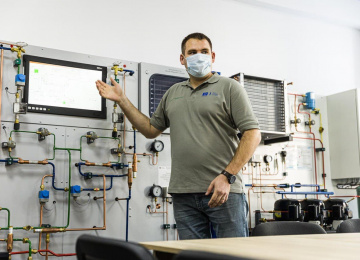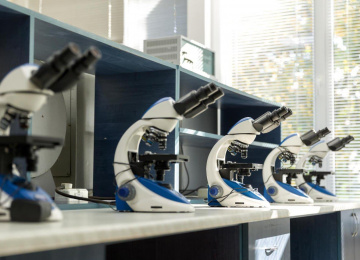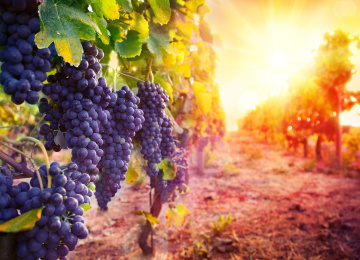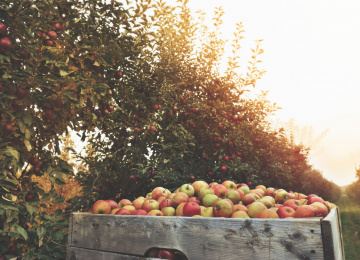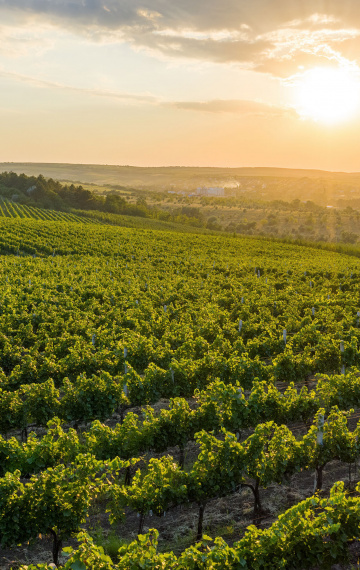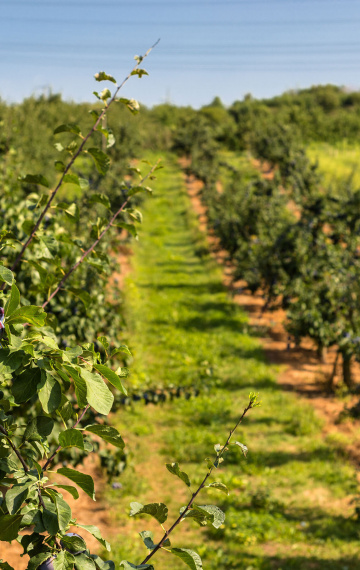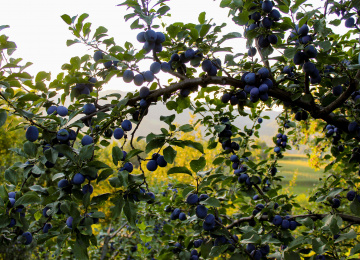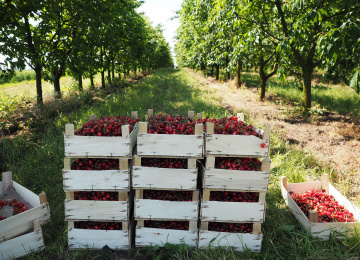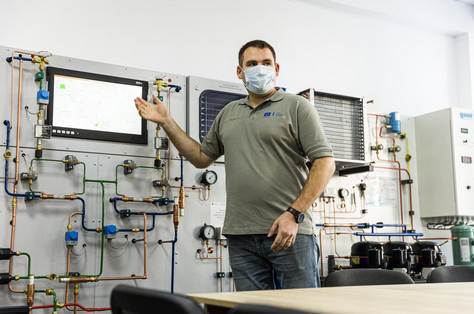
Horticulture and tourism have gained considerable importance for Moldova’s economic development in recent years, providing opportunities to launch successful local businesses. The involvement of individuals eager to contribute to the country's development as well as EU financed business support have led to the launch of profitable, high-performing family businesses.
A key pillar for developing innovative, successful businesses in the farming sector is education. With the support of the EU4Business initiative implemented by the European Investment Bank (EIB) together with the Government of Moldova, the Fruit Garden of Moldova project (locally known as Livada Moldovei) provides finance that is helping 10 public secondary and post-secondary educational institutions across the country to increase academic capacities and modernise facilities.
“The objective is to align the quality of horticultural studies to European standards through massive investments in infrastructure and construction, the endowment of laboratories and modern equipment, and updated curricula,” says Iurie Virlan, Livada Moldovei’s communication officer. “Programmes are being adapted and improved, so that our educational institutions graduate specialists who meet the needs of Moldova’s agriculture and make use of its opportunities.”
The value of these opportunities is evident when looking at some of the horticultural entrepreneurs who benefitted from Livada Moldovei’s investment financing for private businesses.
One good example is Ecaterina Vasilachi from Truseni, Moldova. In 2017, she started an orchard business with her husband, growing plums and sweet and sour cherries. In 2019, a €24,450 loan from the EU4Business through EIB allowed the Vasilachis to buy the necessary equipment to develop their business.
“After a few years of growing fruit, I can’t imagine doing anything else now,” confesses Ecaterina Vasilachi. “My advice to young people who want to start a business in this sector is to try. The opportunities and prospects are definitely there.”
With the support of Livada Moldovei, Maxim Burlacu, a 27-year-old from Zgurita, has also been rather successful. Burlacu is passionate about farming and has known this sector since he was a little boy. Today, Burlacu is a horticultural entrepreneur with 83 hectares of orchards: sweet and sour cherries, apricots, plums, and a variety of apples. A loan of around €120,000 provided as part of the EU4Business initiative through the EIB has helped him make his dreams come true.
“While I was in university, I went to a number of international conferences and exhibitions,” says the young Moldovan farmer. “That’s how I understood that the future of horticulture lies in super-intensive orchards we have to invest in.”
Moldovans are also returning from abroad to invest in their country’s agriculture. Dorina Tataru came back home to develop an agricultural business. “I decided to stay in my home country and show that a Moldovan business can be prosperous,” says Dorina. Through Livada Moldovei, the young woman was able to buy a support system for her cherry orchard, a key component of orchard intensification.
Moldova itself looks like a bunch of grapes on the map, and it’s not surprising that it is home to some of the most beautiful vineyards in Europe. Farmers are demonstrating this at the Agro-Cainari Cooperative, which includes a young table grape plantation. With the help of Livada Moldovei, the farmers were able to provide their vineyard with irrigation.
“The Pergola system makes it possible for us to harvest 30-45 tonnes per hectare, compared to the traditional system, which can provide only 10-12 tonnes per hectare,” explains Roman Sava, one of the founders of the cooperative. “The climate is in our favour, the conditions are good, and our people are hardworking. With the necessary desire and finance, I think that agriculture in Moldova has a good future.”
The members of the cooperative plan to sell their first harvest on the domestic market and have plans to export their produce in the future.
A new horticultural direction in Moldova that is becoming more important and attractive is the berry business: growing for example sea buckthorn, aronia, blackcurrant and blueberries. Thanks to Livada Moldovei, the Toma family is now cultivating berries on 14 hectares.
“Livada Moldovei provided us financial support because we had to import seedlings from Romania and Poland,” notes Iurie Toma. “With this support, we were able to install a high-performance irrigation system.”
Meanwhile, Moldova’s tourism sector has also started to contribute to the country’s economic development. The Livada Moldovei project supported by the EU4Business and implemented by the EIB has helped finance agritourism in the heart of Codri, Moldova’s oldest forested park some 50 km from Chisinau. In this beautiful region, Tatiana Malii intends to set up a BNB after having listened to the wishes and needs of those who visited her restaurant: “The idea came from diners, who kept mentioning their desire to rest in a pure, quiet natural area, where the food is traditional, authentic, natural — and grown by us.”
The new, green BNB hopes to satisfy all the needs of tourists looking for an enjoyable rest, something that’s different. Malii is emphasising the location, but also the services that she will offer visitors.
The Livada Moldovei project, a credit line provided with the support of the EU4Business initiative through the EIB, became operational at the end of 2016. Livada Moldovei loans come with assistance in the form of support and advice for developing investment projects as well as technical assistance. The beneficiaries of these loans are registered commercial entities pursuing an investment project in horticulture and related areas.

